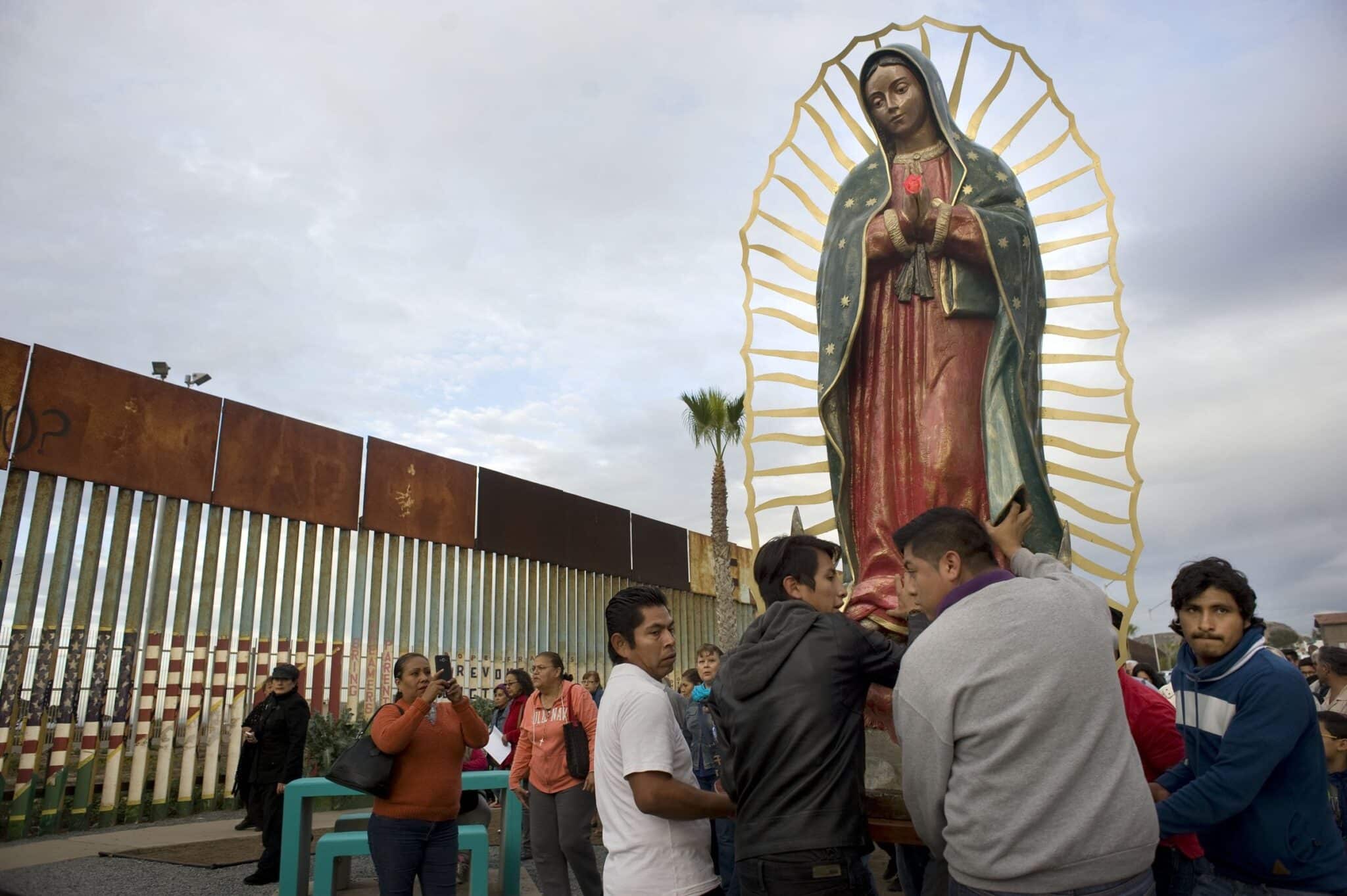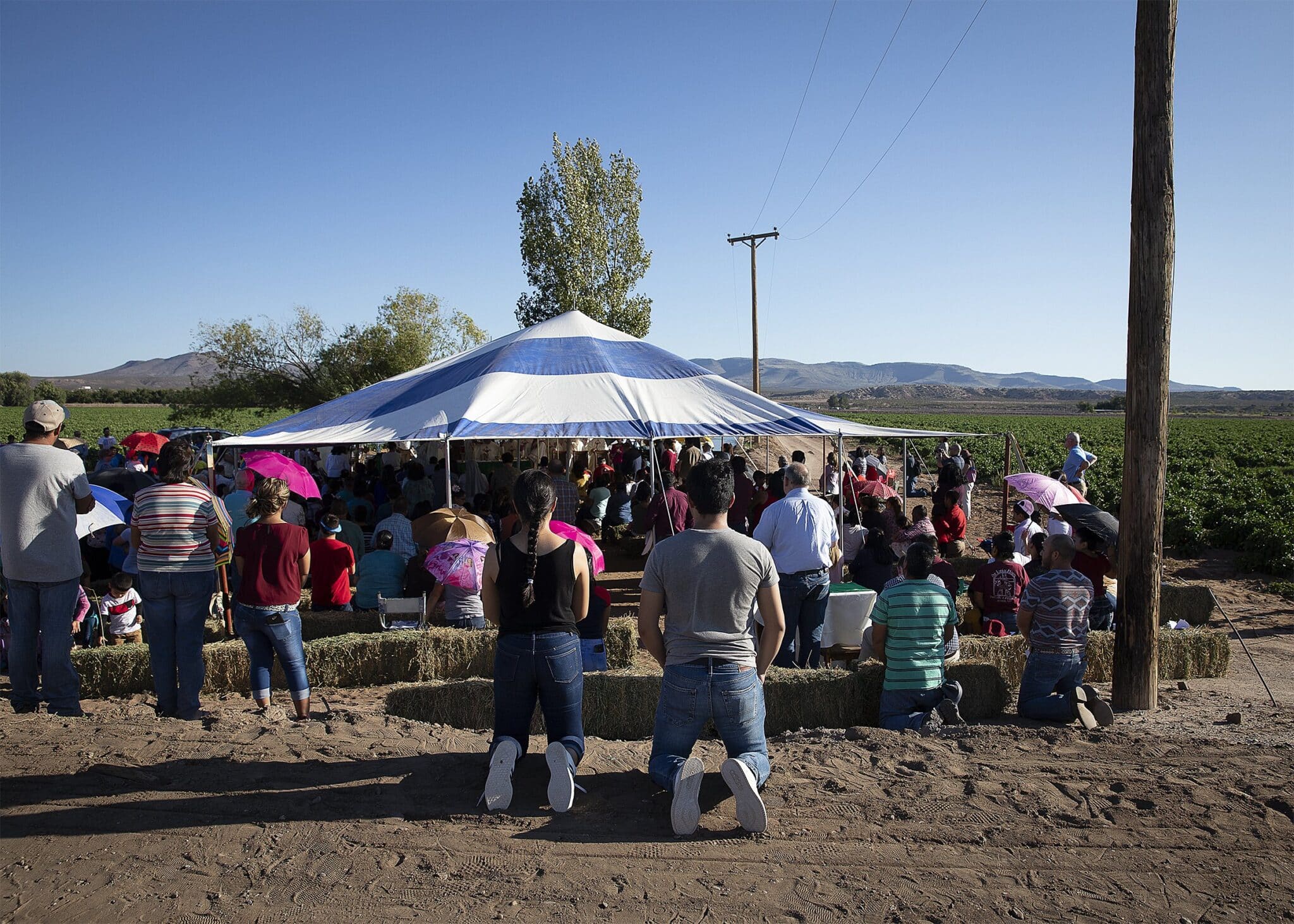Thursday of the Fifth Week of Lent | Readings: Genesis 17:3-9; John 8:51-59
REFLECTION
In the First Reading from Genesis, we have an encounter between Yahweh and Abraham, when he is ninety-nine years old. It is a third-time repeat of his first call, each time adding a few new elements to the meaning of their relationship or “covenant.” But one thing that does not change is that although the relationship is totally initiated and invited from God’s side, it is still a bilateral covenant. There is always a bit more of a requirement expected from Abraham each time: leaving his country and family (12:1–2), the sacrifice of animals (15:9–11), and here there will be required circumcision (17:9–14), and belief that he will have a son (17:16ff ). At which both he and his wife, Sarah, laugh!
The God-human relationship must start bilaterally. It is the only way to get us into the boxing ring. It is the only way to hold us still in one place long enough—so the beginnings of the give-and-take of relationship can happen. But it is not the final goal. Many, if not most, never get beyond “religion as requirements.” What does your religion require of you? Is that wrong in your denomination? It is the question of the rich young man, “What must I do to inherit eternal life?” Since all human relationships are bilateral (least of all, the parent-child), we tend to structure all of our experiences that way. In other words, we are almost totally unprepared for God! Unless we know how a perfect parent might love a child—unilaterally.
Gradually, as the Hebrew people are continually unfaithful to the initial Abrahamic Covenant, we will see that it becomes more and more unilateral from Yahweh’s side. Really quite wonderful! God does it all, whether or not we cooperate at all. I would not believe it myself if I did not read the successive covenants with Noah, David, and, of course, what Jeremiah predicts, and we eventually call “the new covenant” with Jesus. Each succeeding time God, in effect, says “I might as well let you in on the big secret, I do it all anyway!” Jesus becomes the living icon of that new and everlasting covenant, where God does all the loving and we do all the receiving. It is symbolized every time we hand out the “cup of his blood” to you—and say “the new and everlasting covenant.”
This gives you a foundation and background with which to read the Gospel today. Jesus himself stands in right relationship with his Father and receives all his “glory” from him. It is a fully reflected glory and therefore unwavering, constant, infinite, and from one Source. This is exactly the “eternal life” that he speaks of here, and then even tells us we can have it too. So you see the sequencing: Jesus perfectly reflects God’s glory given from the Father, then we are invited to receive and reflect that same glory which is reflected from Jesus. It is all a reflection received, a glory given, inherent, and unilateral gift from God’s side. (Remember, we are not talking about psychological or moral worthiness here, we are talking about metaphysical identity, our True Self, which is our “birthright” from God.) We humans are always unwhole, but we still receive and can ever more perfectly reflect our divine identity in God.
This is the great I AM, which Jesus claims at the very end of today’s Gospel (8:58), and yet because they refuse to see it in themselves or in him, they “throw rocks at him.” It is not just hating him but is an expression of their own self-hatred. Read the passage below, which is so central and crucial for our understanding, that I will add my commentary within the text:
TODAY’S READINGS
“If I glorify myself, that glory means nothing [Eternal life is not self generated]. He who gives me the glory is the Father, the very one you claim for your God [It is a mere verbal affirmation]. But you do not know him [“You do not allow or trust the reflection of God’s glory in yourself”]. But I know him [“I allow and believe the reflection fully”]. If I said I do not know him, I would be no better than you—a liar!” [Jesus is not being cruel here. He is saying that they are telling an untruth by denying their divine identity. We do know him, reflect him, and even have eternal life now, but we refuse to see it, and in that sense, we are all “liars.”] —John 8:51, 54–55
STARTER PRAYER
“My God, this changes everything. Let it be true for me. Let me see what you saw. Allow me to know that I and all of us are reflections of the Eternal Glory.”
¡Haga clic aquí para ver la traducción en español!








